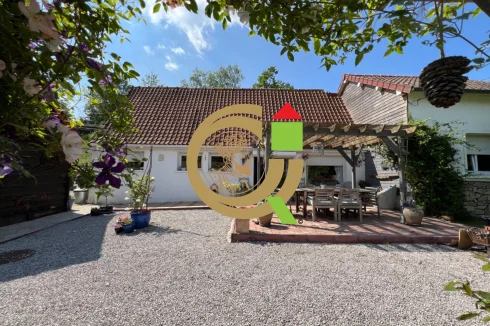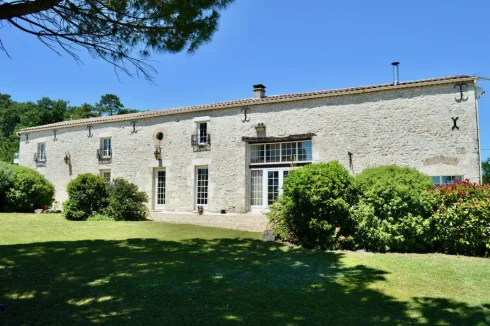Planning Applications - Public Right of Information
Friday 03 December 2021
The public right of information to land planning applications in France is tightly prescribed, so obtaining early notice about proposed neighbouring developments is often not easy.
Readers from the UK and most other Western democracies will be familiar with a land planning system that grants them rights of consultation and access to information.
Thus, in the UK, those who may be affected by a proposed new development are notified by the local planning authority and are granted a right to make representations on the planning application. The local council are also obliged to place a public notice in the local press.
In France a rather different approach is taken, for French municipalities are normally reticent about sharing information on planning applications, a culture of secrecy that is ordained in public law.
There is no legal right of neighbour notification as occurs in the UK. Instead, the local planning authority is merely required to place a notice on a board at the mairie that a planning application has been deposited. The notice does not contain a great deal of information, other than the location and nature of the proposed development.
Neither are there public notice obligations on the part of the applicant so there is no notice on the site.
As a result, unless you happen to pass by the mairie on a regular basis and check their notice board, or you hear by word of mouth, you would not normally be aware that a planning application for a new development adjoining or close to your property had been lodged.
The position is made worse if you happen to live on the border with a neighbouring commune when, to remain informed about proposals on your doorstep you would need make a voyage of discovery to both offices.
There are also stark differences over public consultation. Once again, whilst there is an obligation in the UK to consult with those who may be affected by the application, and other relevant bodies, there is no public consultation requirement in France. That would only apply in relation to a new local plan or on the rare occasions when a public enquiry was necessary.
Arthur Cutler of French planning consultancy French Plans considers that even with a local plan there can be an air of secrecy: "Other than the placing of a notice at the mairie, there is no obligation on the part of the local planning authority to publicise any proposed changes to the local plan. This is particularly relevant for those who buy building land, but do not carry out the development within a relatively short time-frame. We regularly encounter owners who are shocked to find that there has been a change to the local plan and that the building plot they thought they owned is no longer zoned for development."
Moreover, even if you should happen to find out about a lodged planning application, you have no right of access to view the application.
Under Article L311-2 of the Code des relations entre public et administration only documents on decisions made are accessible to the public.
Only once a decision has been made is the law is unequivocal in giving the public a right of information, with Article L. 2121-26 du code général des collectivités territoriales stating:
'Toute personne physique ou morale a le droit de demander communication des procès-verbaux du conseil municipal, des budgets et des comptes de la commune et des arrêtés municipaux.'
Not only do they have a right to request the documents, but under the Code des relations entre public et administration the council has an obligation to supply them.
This right extends to all the relevant documents surrounding the decision, including the planning application itself.
Planning Appeals
Beyond the right to information, the applicant and members of the public can also challenge the decision, but they must do so within 2 months of the decision.
Once again, however, there are constraints on just who can appeal a decision as, arising from a law passed in 2013, only an individual directly affected by the planned development has a right to appeal the decision.
Under Article L. 600-1-2 du Code de l'urbanisme, no challenge can be entertained by the courts unless 'les travaux sont de nature à affecter directement les conditions d'occupation, d'utilisation ou de jouissance du bien'.
That law also introduced a right for courts to impose severe financial penalties on those who brought an abusive appeal which caused financial consequences for the applicant.
We considered the implications of this change in law in our article Right to Challenge Planning Decisions.
Thank you for showing an interest in our News section.
Our News section is no longer being published although our catalogue of articles remains in place.
If you found our News useful, please have a look at France Insider, our subscription based News service with in-depth analysis, or our authoritative Guides to France.
If you require advice and assistance with the purchase of French property and moving to France, then take a look at the France Insider Property Clinic.





